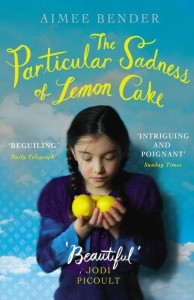
I am not good at giving up on something before its natural end. (With the exception of cleaning up my room where there is no such thing as stopping too early.)
This applies to eating meals, where I must finish all the food on my plate – blame my mother for that one – suck all the marrow out of every possible life experience to the point of exhaustion if need be … and the reading of books where the only satisfactory course of action is reading the last words on the final page.
It’s pretty much a non-negotiable part of my life. You start something, you finish it, no exceptions. (To be fair much of this completist mentality stems not so much from parental influence as my extrovert temperament which either does something full-on, or doesn’t do it all; there is no in-between.)
So giving up on a book, particularly one recommended to me is almost impossible to contemplate. It feels like an epic admission of failure, as if I’m letting down that author, my local bookshop (hello Better Read Than Dead, Newtown!), the entire publishing industry and reading community.
Yep, that’s a lot of guilt at my disposal and I use it well, demanding, cajoling and near-pleading with myself to get to the end of the book even if it feels like every syllable is stabbing a small, bloody wound in my brain. (I’ll give you a minute to picture that; good, all done?)
But sometimes, despite the small voices in my head condemning me to literary purgatory should I so much as withdraw the bookmark from the point of the book I’ve reached, I can’t go on and I have to admit that this is one book that won’t grace the halls of my fondest reading memories.

The book that precipitated this article is Yann Martel’s The High Mountains of Portugal, a book which the local bookshop heartily recommended – they even put a sticker on the cover declaring their fecund, undying love for the tome – and which I should have loved based on past performance.
His Man Booker Prize winning novel The Life of Pi is one of those books that I bought in hardcover, a luminously wonderful, highly-evocative story of one man’s journey across the oceans and to the very depth of his soul. It’s insightful, poetically-written and is an unquestionable joy to read.
So I should have loved his latest book then right?
Not so fast. I simply don’t. I have found The High Mountains of Portugal to be turgid, weighed down with impenetrably dense passages of dialogue, a skimpy narrative with no real sense of direction or meaning, and characters I couldn’t possibly care less about. Intellectually I can see what he’s trying to say and I admire it but as a reader, I am beyond bored, weary of reading page after page about turn of the 20th century motoring, of the connection between Agatha Christie and Jesus – apparently there is one – and a Simian-esque rendering of Jesus on the cross.
It’s supposed to be full to the brim with poetic questions of suffering, grief, loss and big questions about religion and the nature of being, and the connections that occur between disparate people across decades in ways no one could have possibly envisaged.
Ambitious yes? Touching? Possibly. But I remained resolutely unaffected, more angered than deeply-affected at the many pages spent on pointless recitations of car maintenance or mystery novels.

So after four weeks of struggling with the book, and stubbornly refusing to read another book until I was done – I read a book, I review it, then I start another; hence the dearth of book reviews on this blog over the last 4 weeks or so – I gave up, consigning Yann Martel’s latest book, one adored by many people who saw in it something I missed, to a dusty room occupied by the likes of Margaret Atwood’s Oryx and Crake (yes I know a classic; I beg to disagree) and The Windup Girl by Paolo Bacigalupi, which Shortlist Magazine declared one of the 20 Best Dystopian Novels.
I appreciate my views diverge from the majority; that doesn’t worry me since I have always been possessed of contrary sensibilities so being out of step with everyone around me doesn’t concern me overly.
What does worry me, and why giving up on books is such a traumatic experience, is that I feel like I have failed to see something amazing and wonderful, something clearly visible to everyone else.
But then I realise that for reasons utterly subjective and intangible and sometimes impossible to quantify I simply didn’t like the book and in a world where I like an insanely large amount of other brilliant and amazing books that is OK.
Even so, every time I pass my bookshelf, I will feel Yann Martel silently reproaching me for fail to grasp his artistic vision, and I will have to remind myself repeatedly that it’s not the worst thing in the world to dislike a book.
It just feels that way.
